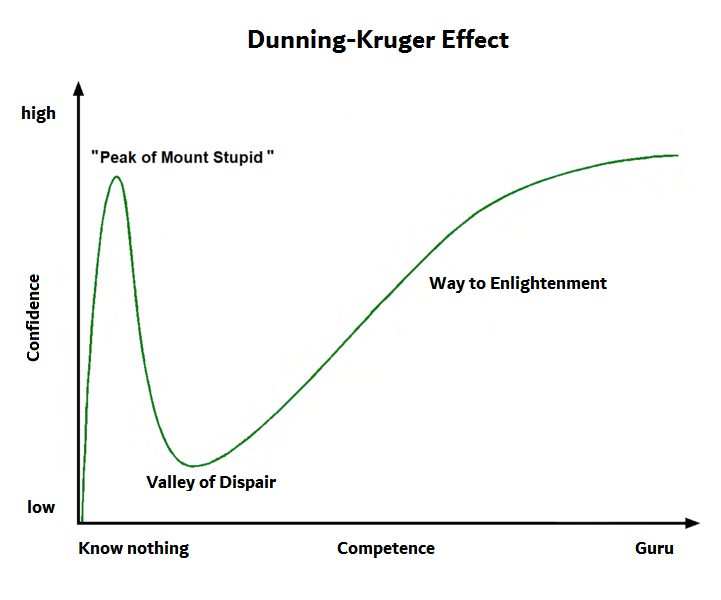When WSU’s PPMC asked me to facilitate a session, and then when COVID hit, to write about “Working with Incompetent People,” I laughed out loud. What did that say about me? My business partner and I are blessed to work alongside very smart people including the PPMC team.
Yet, wherever you are in your career, each of us can likely recall at least one experience and its accompanying feelings.
We’re all competent and incompetent
So, yes, the incompetence can be theirs. Or it can be ours because all of us are incompetent at something. My list is long, but I’m horrible at anything requiring spatial abilities – forget about IKEA furniture directions.
But, I know I’m competent in other areas, and in some areas, I’m considered highly skilled. Competence is how we perform compared to a standard. If you’re a social media expert, then your standard is knowing how to apply the complex algorithms used. Or, consider what competence is in teaching band to middle schoolers.
Years ago, I watched a consultant who had been highly successful as a manager of multiple, get-it-done projects. Then the person was less successful at a project requiring a more “herd-the-cats” complexity. This lesson reminded me to accept jobs and projects that most utilized my strengths and allowed me to shore up my weaknesses through a team approach, new learning, or sheer will, if possible.
Sometimes, learning or trying harder isn’t a realistic option. Clearly, I’d never make it as an architect or a mechanic with my spatial incompetence. If you’ve found yourself in a position where your weaknesses are the competence required, figure out options and bring those potential solutions forward.
Now, what if the incompetence isn’t us, but it is them?
What if it is them? A three-step process
First – examine why you think they are not able to do the work. There are many potential reasons:
- Lack of training or knowledge – Hired a promising, organized person to be a project manager, but they received no training.
- Not capable or in wrong position –Asked them to do something they aren’t capable of such as someone asking me to put something together from Ikea .
- Peter Principle – Was good at one job skill so promoted, but not skill set for instance, great at sales but not as a sales manager.
- Medical or health issue – Any age can have cognitive issues, mental health challenges or mini-strokes.
- ADHD or learning disorder – How the brain processes information can affect job performance and many people have never been diagnosed.
- Dunning-Kruger Effect – a cognitive bias where someone believes they are smarter and more capable because doesn’t possess the skills needed to recognize own incompetence.

Source: Wikipedia
(Note - Remember that these issues are different than someone not wanting to do the work. That is a different situation and requires its own discussion and understanding of why: Are they tired? Given up? Beaten down? Burned out?)
Second – from what you can tell, do they realize their level of competence in the task or job?
- If you think they do, then the “how” to work with them can potentially be more open, knowing that whatever the situation, these conversations can be hard and must be appropriate, professional and legal.
- Or if you think they don’t realize, or worse, if they firmly believe that they are experts in the very area of their incompetence or experts in everything, then we need a different approach. Also realize that other complicating factors such as arrogance or the inability to listen, often accompany some of these reasons, such as the Dunning-Kruger effect.
Third – and most important, how does their inability to do work affect you?
It doesn’t – just makes me mad because it’s not fair.
My best counsel is to get over it. Which is personally hard for me because I have issues when things aren’t fair and clearly the world is not fair. In this specific case, it’s best for me to focus on my own work and get over any unfairness.
I rely on them doing their job to do my job.
Recognize you’re in this together – and that it’s not fair. However, it’s still important to do your best work and help them because it matters to you. But also, try to help while protecting yourself.
- If you can, talk with your supervisor and give three or four specific examples to ask for support, ideas or help addressing.
- Try to help the person learn. They may or may not be open to this, but either way, you’re being a good colleague and human to try.
- Do not take on their entire job or completely rework everything because that is not sustainable.
- Try to set clear parameters, clarify work product responsibilities and project deadlines – in writing such as e-mail. It’s important to protect yourself by carefully documenting.
- Choose doing great work over bitterness or anger, but allow yourself to acknowledge frustration and, if needed, to vent to a smart outside person, without letting it rule your life.
They are my boss.
And this is where it becomes especially complicated. Are they experts in other areas of their job, but not the specific area where you work? Are they open to learning or believe they already know?
- If open to learning, think about how they best learn and time available and build
a program that fits them. Examples:
- Provide limited, powerful information or examples about major concepts through case studies or short articles.
- Suggest a “brown-bag” series of learning sessions where someone on the team shares their expertise building the boss’ and everyone’s knowledge.
- If they are not open to learning and will always be the only expert in the room and
must always “win,” then options are limited.
- Be careful and if possible build your examples and case in a professional manner and talk to HR or a trusted advisor in the organization asking for counsel.
- Put up with it and keep documenting for the day it will end or erupt.
- Work to find another job. Especially if the person has other complicating factors such as emotional abuse, narcissism or creating a toxic work environment; if there is no path to solutions, begin looking for another job.
Each situation is as unique as each of us individual humans. Combine your values and thoughts with input from trusted, objective friends and colleagues. But in the end, know that only you will ultimately know which path you can or should take.
In a recent article, I saw the following statement that summarizes what would be a short in-person session, but turned into a long blog post. It applies to us as wonderful, learning, flawed humans:
Self-deception is one of the most universal attributes of human cognition.


